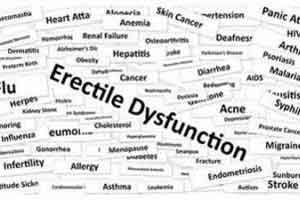- Home
- Editorial
- News
- Practice Guidelines
- Anesthesiology Guidelines
- Cancer Guidelines
- Cardiac Sciences Guidelines
- Critical Care Guidelines
- Dentistry Guidelines
- Dermatology Guidelines
- Diabetes and Endo Guidelines
- Diagnostics Guidelines
- ENT Guidelines
- Featured Practice Guidelines
- Gastroenterology Guidelines
- Geriatrics Guidelines
- Medicine Guidelines
- Nephrology Guidelines
- Neurosciences Guidelines
- Obs and Gynae Guidelines
- Ophthalmology Guidelines
- Orthopaedics Guidelines
- Paediatrics Guidelines
- Psychiatry Guidelines
- Pulmonology Guidelines
- Radiology Guidelines
- Surgery Guidelines
- Urology Guidelines
Prediabetes may lead to sexual dysfunction in men

Individuals with the presence of both impaired fasting glucose (IFG) and impaired glucose tolerance (IGT) have an increased risk of impaired sexual functioning, according to a study published in the International Journal of Impotence Research.
A fasting blood sugar level from 100 to 125 mg/dL(5.6 to 7.0 mmol/L) is considered prediabetes. This result is sometimes called impaired fasting glucose. A fasting blood sugar level of 126 mg/dL (7.0 mmol/L) or higher indicates type 2 diabetes.
According to the authors, individuals in whom IFG coexists with IGT, the risk of sexual dysfunction is particularly high and, beyond diabetes, this condition should be taken into consideration in the differential diagnosis of men with apparently idiopathic sexual insufficiency.
Robert Krysiak and his associated conducted a study which included four age- and weight-matched groups of apparently healthy men aged between 25–50 years old;
- Subjects with isolated impaired fasting glucose (IFG) (n = 16)
- Men with isolated impaired glucose tolerance (n = 17)
- Individuals with the presence of both IFG and impaired glucose tolerance (n = 16) and
- Men with normal glucose tolerance (n = 18).
Read Also: More than three-quarter of Diabetic males have Erectile Dysfunction: Ganga Ram Hospital Study
The study group was asked to fill out a questionnaire evaluating male sexual functioning (IIEF-15) which assessed the presence and severity of depressive symptoms (BDI-II).
Key study findings:
- Half of the men with both IFG and IGT had Erectile Dysfunction, compared to 27% of men with either condition alone and 11% of the control group.
- Men with IFG plus impaired glucose tolerance obtained lower domain scores for erectile function, sexual desire, and overall satisfaction, as well as the higher overall BDI-II score
- Depressive symptoms were significantly higher in men with both IFG and IGT group than in the control group
- Men with isolated IFG or IGT did not have higher depression scores than controls.
The authors concluded that the study suggests sexual desire is more prone to alterations in metabolism or hormonal imbalance than other aspects of male sexual functioning and that decreased libido may be found at earlier stages of glucose metabolism abnormalities than erectile dysfunction, orgasmic dysfunction, intercourse dissatisfaction, and decreased overall satisfaction.
For reference log on to https://www.nature.com/articles/s41443-018-0050-6

Disclaimer: This site is primarily intended for healthcare professionals. Any content/information on this website does not replace the advice of medical and/or health professionals and should not be construed as medical/diagnostic advice/endorsement or prescription. Use of this site is subject to our terms of use, privacy policy, advertisement policy. © 2020 Minerva Medical Treatment Pvt Ltd